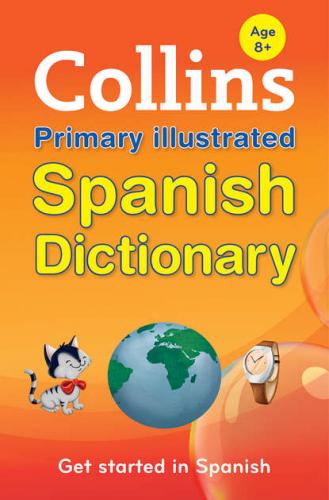absent-minded Mi padre es muy distraído. My father is very absent- minded. Perdona, estaba distraído. Sorry, I wasn’t paying attention.
la diversión (PL las diversiones) NOUN
entertainment
Language tip
Be careful! diversión does not mean diversion.
divertido (FEM divertida) ADJECTIVE
funny Fue muy divertido. It was great fun.
divertir VERB
to entertain Nos divirtió con sus cuentos. He entertained us with his stories.
■ divertirse to have a good time
dividir VERB
to divide El libro está dividido en dos partes. The book is divided into two parts. Divide cuatro entre dos. Divide four by two.
■ dividirse to divide/to share
Language tip
dividirse has two meanings. Look at the examples.
Nos dividimos el trabajo entre los tres. We divided the work between the three of us. Se dividieron el dinero de la lotería. They shared the lottery money.
divierto VERB ▷see divertir Me divierto mucho con ellos. I have a good time when I’m with them.
la división (PL las divisiones) NOUN
division en primera división in the first division Ya sabe hacer divisiones. He already knows how to do division.
el DNI ABBREVIATION (= Documento Nacional de Identidad)
ID card
el doble NOUN
twice as much Comes el doble que yo. You eat twice as much as I do. Trabaja el doble que tú. He works twice as hard as you do.
doce (FEM doce) ADJECTIVE, PRONOUN
twelve Tengo doce años. I’m twelve.
Son las doce. It’s twelve o’clock. el doce de diciembre the twelfth of December Nació el doce de diciembre. He was born on the twelfth of December.
la docena NOUN
dozen
el doctor la doctora NOUN
doctor Cuando crezca me gustaría ser doctor. I want to be a doctor when I grow up.
el documental NOUN
documentary
el documento NOUN
document un documento oficial an official document el documento nacional de identidad the identity card
doler VERB
to hurt Me duele el brazo. My arm hurts.
Me duele la cabeza. I’ve got a headache. Me duele la garganta. I’ve got a sore throat.
el dolor NOUN
pain Gritó de dolor. He cried out in pain.
Tengo dolor de cabeza. I’ve got a headache. Tengo dolor de garganta. I’ve got a sore throat. Tengo dolor de estómago. I’ve got a stomachache.
doméstico (FEM doméstica) ADJECTIVE
domestic para uso doméstico for domestic use las tareas domésticas the housework un animal doméstico a pet
el domingo NOUN
Sunday
Language tip
The days of the week are not spelled with a capital letter in Spanish.
La vi el domingo. I saw her on Sunday.
todos los domingos every Sunday el domingo pasado last Sunday el domingo que viene next Sunday
don MASC NOUN
don Juan Gómez Mr Juan Gómez
donde ADVERB
where La nota está donde la dejaste. The note’s where you left it.
dónde ADVERB
where ¿Dónde vas? Where are you going? Le pregunté dónde estaba la catedral. I asked him where the cathedral was. ¿Sabes dónde está? Do you know where he is? ¿De dónde eres? Where are you from? ¿Por dónde se va al cine? How do you get to the cinema?
doña FEM NOUN
doña Marta García Mrs Marta García
dorado (FEM dorada) ADJECTIVE
golden
dormir VERB
to sleep Antonio durmió diez horas. Antonio slept for ten hours. dormir la siesta to have a nap estar medio dormido to be half asleep
■ dormirse to fall asleep Me dormí en el tren. I fell asleep on the train. Se me ha dormido el brazo. My arm has gone to sleep.
el dormitorio NOUN
bedroom
dos (FEM dos) ADJECTIVE, PRONOUN
1 two Tenemos dos gatos. We have two cats.
2 both Al final vinieron los dos. In the end they both came. Los hemos invitado a los dos. We’ve invited both of them.
Tiene dos años. He’s two. Son las dos. It’s two o’clock. el dos de enero the second of January Nació el dos de enero. He was born on the second of January.
doscientos (FEM doscientas) ADJECTIVE, PRONOUN
two hundred doscientos cincuenta two hundred and fifty
doy
